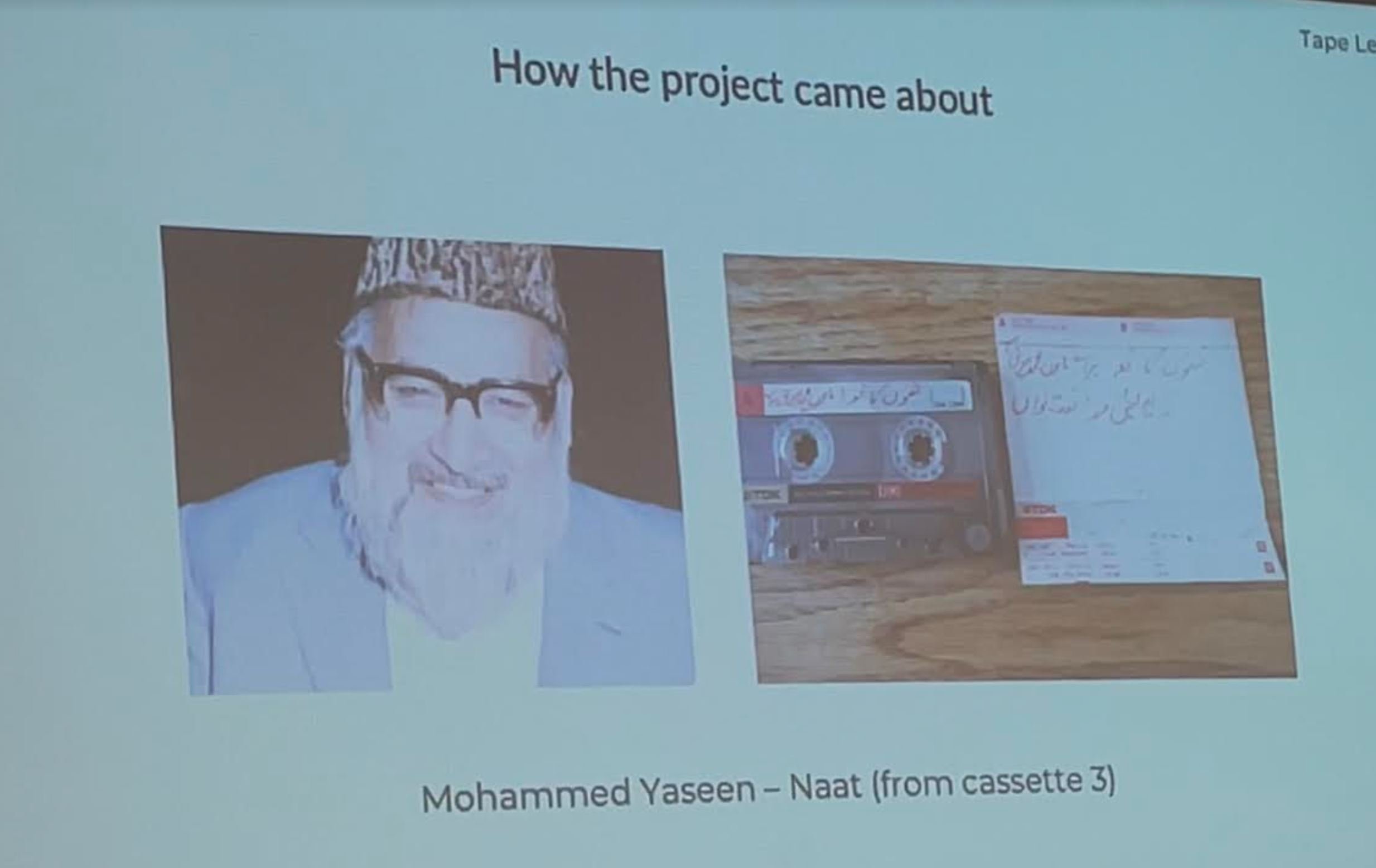By Andie Kim
Decades of history and tradition will live on via cassette tapes recorded by Pakistani individuals who immigrated to Britain in the mid to late 20th century, London-based artist Wajid Yaseen recently told a UC Santa Barbara audience.
London-based artist Wajid Yaseen talked about how cassette tapes give a rare glimpse into the immigration experiences of Pothwari-speaking people, since their language has no written form.
Yaseen has documented the complexities of immigration and identity by collecting hundreds of cassette tapes and personal interviews in the Pothwari language, which has no written form. Families and friends would send each other recordings, instead of letters.
“We wanted to contextualize the use of tape as a form of communication, not music,” Yaseen said.
The event was hosted by UCSB’s Center for the Interdisciplinary Study of Music, Ethnomusicology Forum, and the Library Special Collections. The event was also sponsored by the Interdisciplinary Humanities Center’s South Asian religions and cultures research focus group.
Tape Letters: Migration on Tape is a five-year project created by Yaseen, consisting of first-hand narratives and songs that highlight the migration experiences of Pakistani immigrants who moved to the United Kingdom from 1960-1980.
“We all reconcile loss in different ways and at different times and sometimes, five or 10 years later, that thing hits you again in a very raw sort of way,” Yaseen said.
Artist Wajid Yaseen started collecting cassette tapes after he came across some his late father had made for people in Pakistan after he immigrated the UK in the 1960s. Yaseen’s multimedia archival project Tape Letters serves to preserve an oral only language.
Yaseen found inspiration for this project when he came across a cassette tape of his father singing. These tapes are known as Naat tapes and were made to send back to people in Pakistan after the Yaseen family had moved to the UK in the 60s. Yaseen found these tapes when he returned to his family home to look through his father’s belongings after he passed away five years ago.
After sorting through dozens of his father’s Naat tapes, Yaseen stumbled across a tape from his mother’s childhood which was titled “The Chatterings of Dhuddi Village” and contained not singing, but rather recordings of stories and memories from his mother’s childhood. “I knew these [tapes] were different, I suspected I had something significant in my hands at the time,” said Yaseen.
There are fewer than 100 languages without a written form and the Pothwari language is one of them. These cassettes provide a glimpse into the lives of the Pothwari-speaking community and the struggles of keeping an oral language alive during an era of increasingly advanced technology. The content on the tapes range from personal narratives, to intimate conversations between lovers, to updates among family members.
Artist Wajid Yaseen used an analysis software called Nvivo during his research, which identified common themes of sexuality, literacy, education, and migration throughout the cassette tapes of Pothwari-speaking Pakistanis who immigrated to Britain.
After conducting hundreds of interviews and commissioning a transcription of the cassettes, Yaseeen and his team worked on coding each based on common themes and patterns, such as parental expectations, sexuality, literacy and education, and migration. The team used a collaborative qualitative analysis software called Nvivo, in order to categorize all of the information.
From this, Yaseen was able to identify three major themes that became the project’s focus – migration, language, and communication technology. The team’s work resulted in a multimedia installation held in the People’s History Museum in Manchester. He is also producing a book from the archival material and he has produced a Tape Letters radio series on SoundCloud.
“This project isn’t an art project, it’s thinking about sound in this other way that’s outside of music – how cassettes were used for audio messaging and were sent by people like my parents who came to the UK in the 60s,” said Yaseen. In the future, he hopes to expand his multimedia audio research project to countries beyond Pakistan.
Andie Kim is a third-year UC Santa Barbara student majoring in Communication. She covered this event for her Digital Journalism class.




